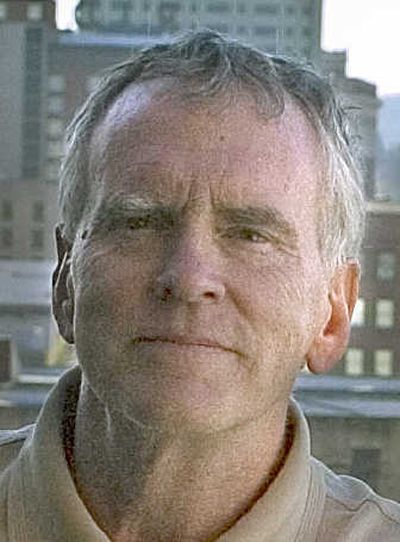Deal topples proposed condo tower

Spokane officials and a developer hope a new deal will scratch the proposed controversial condo tower that Peaceful Valley residents fought, fearing the shadow it would cast over their neighborhood.
But a landowner on the other side of downtown says he’s concerned the new agreement could cast another shadow – over the solar panels of what’s been touted as one of the state’s most environmentally friendly buildings.
Under the proposed agreement, the city would sell land next to Fire Station No. 1 along Riverside Avenue to developer Mick McDowell where he could build a different building.
Spokane leaders tout the plan as a way to stop two lawsuits filed against the city, place land on the tax rolls and put an end to the unpopular tower. It will be considered by the Spokane City Council on Monday.
But the owner of the adjacent Saranac Building, which was retrofitted with solar panels this year, fears a new building on Riverside would block the solar energy coming to his property.
“Now there’s a whole new set of problems,” said Saranac Building owner Jim Sheehan. “I’m not upset with Mick in any way. It would seem to me that the city should have an overall plan in what they’re doing and that plan has to include alternatives to fossil fuel.”
McDowell has written a letter attached to the agreement promising to negotiate with Sheehan about the impacts of a new building.
“I am committed in the highest way possible” to negotiate in good faith, McDowell said in an interview. “I am absolutely committed to green building.”
In April, the Spokane City Council unanimously approved an agreement with McDowell to allow him to build the 17-story condominium tower next to Peaceful Valley. The city’s hearing examiner had earlier denied the project based on height rules. But McDowell sued the city, arguing that the height limits were created without proper notice.
As part of the April deal, the city also agreed to allow McDowell to lease the land on Riverside that’s now proposed to be sold.
But a month after the City Council approved the agreement, Peaceful Valley residents filed their own lawsuit against the city.
In response, the city and McDowell negotiated the new agreement that would force him to follow new height rules on the property adjacent to Peaceful Valley. In return, the city would sell him the land next to Fire Station No. 1 for almost $700,000.
Earlier this year, McDowell proposed using the property near the fire station to build a $60 million, 300,000-square-foot office building. This week, McDowell downplayed that proposal, stressing that it was preliminary and that market forces could change what’s ultimately constructed.
Spokane City Councilman Bob Apple said the last agreement was presented as a permanent fix. He questions the city’s willingness to sell the land when it had a deal that would have generated lease income.
“Now the city is actually going to lose,” he said. “I don’t think we have the right to cut these kinds of deals.”
Apple added that he doubts that McDowell would build the Peaceful Valley tower anyway because of a sagging condo market.
Even if that’s true, said Chief Operating Officer John Pilcher, the city could face liability because McDowell could argue that the city improperly kept him from developing the land into condos when the market was hot.
“Whether the condo market is drying up or not, I think there is exposure to the city,” Pilcher said.
Apple also said he believes the sale price is too low.
“It’s basically a giveaway of public property,” Apple said.
But Chief Financial Officer Gavin Cooley said the price is a great value to the city, especially considering an appraisal of the land showing it worth about $35 a square foot.
“I would have argued that that was a good sales agreement without the threat of a lawsuit,” Cooley said.
The city’s selling price is in line with the estimate, but Cooley notes that McDowell is guaranteeing the city use of 38 parking spaces on the land. That and other factors make the deal’s value about $58 a square foot, Cooley said.
As for the solar panels, McDowell said he’s open to several options, which could include putting solar panels on his property.
Sheehan argues that the city should place a solar easement on the land before selling it to McDowell. He acknowledged that such an easement would be unique in Eastern Washington, but added they might become commonplace because of a growing need for cleaner energy.
“I think there ought to be solar panels on every single new building in the city, but not at the cost of shielding other solar panels,” Sheehan said.
Mayor-elect Mary Verner said she has concerns about the possible shadow effect on the Saranac, but is encouraged by McDowell’s willingness to negotiate.
“I’m pretty comfortable with the agreement,” she said.
Verner is executive director of the Upper Columbia United Tribes, which has an office in the Saranac Building.
Councilman Brad Stark said McDowell has gone out of his way to settle the lawsuits in a way that’s beneficial to taxpayers.
“We’re supposed to represent the interests of the entire city, not certain council members’ landlords,” Stark said.
Verner said she has asked the City Council’s research assistant to examine how other cities have protected solar panels from shadows of new construction.
“I’m not approaching this as a tenant of the Saranac Building, and pretty soon, I’m not planning to be a tenant of the Saranac Building,” Verner said. “I’m looking at this as a land-use issue that’s going to come up more and more.”